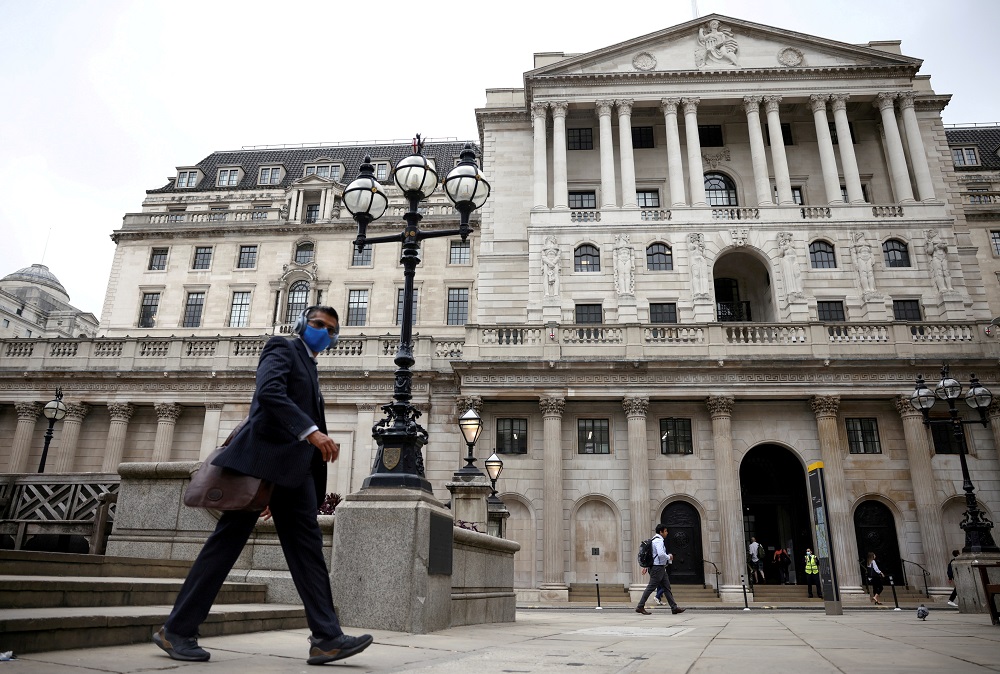Could the BoE hike rates this year?
The UK interest rate markets have moved dramatically in recent weeks with futures markets now pricing in the very real possibility of a small (15-bps) rate hike by the Bank of England by the end of this year.

The BoE has always been reticent to tie its hands too much with the sort of explicit rate forecasts that are given by the likes of the Fed, RBA, Norges Bank, Riksbank and more.
Of all the central banks, the BoE is possibly in the toughest spot, for it is facing the inflationary impact of one supply shock – Covid – at the same time as another adverse supply shock – Brexit – wreaks its own inflationary havoc. The Bank’s best guess is that inflation could rise to above 4% (from 3% now) before it drifts back to the 2% target over the next few years. This Bank has already admitted that this glide path back to the target will require higher rates but the ongoing assumption has been that these might not start until late next year, or perhaps not until 2023.
The fact that the market is now pricing the possibility that the first hike could come this year owes much to the fact that intense shortterm price pressures have materialised, particularly around energy, and hence there seems to be this speculation that the Bank could try to react to this by hiking rates very soon. While we don’t doubt that the spike in inflation could easily be well above the 4% level that the Bank suggests, we’d be surprised to see it hit the panic button with a rate hike this year. For one thing, responding to big movements in prices of commodities such as oil and gas with rate hikes runs the risk of looking foolish if those increases go into reverse. Another point is that these price increases are largely being felt in non-discretionary spending, as it is hard for people to use much less gas if the price soars.
Hence there will be a hit to the economy, and the Bank has to take this into account as well as the inflationary implications. A key issue will be whether wages increase significantly. Average earnings data released every month show a massive 8.3% rise at the moment but these numbers are distorted by all things. Data on wage awards, which are a better indicator right now, show no concerning uptick so far. This could come in time, of course, just as rising inflation expectations could embed themselves in consumer and business psyche, making high inflation look a lot stickier than the Bank is currently assuming.
But Mr. Steve Barrow, Head of Standard Bank G10 Strategy, said that the time to respond to these issues would be some distance in the future, should they become problematic and that means eschewing a ‘panic’ rate hike now just because some prices like oil and gas are shooting higher.
The difficulties of the current situation highlight the folly of trying to guide future rate expectations. The BoE has always been reticent to tie its hands too much with the sort of explicit rate forecasts that are given by the likes of the Fed, RBA, Norges Bank, Riksbank and more. These central banks argue correctly that the forecasts are not promises, but Mr. Steve Barrow still believe that uncertainty would be so high that banks should untie their hands where possible. For instance, the BoE could hike rates this year. We don’t think it will but it is certainly not impossible and the market has priced a fair chance of it happening. Could we envisage the Fed hiking this year? Of course not. Its guidance is more explicit and it is still suggesting that rate hikes will not come for some time (and certainly not until tapering has finished). That might turn out to be accurate but, what if it starts to look foolhardy with an immediate policy tightening clearly required? In this instance, the Fed seemingly can’t respond. Instead, only ‘emergency’ rate cuts seem to be allowed, not hikes but it may be that hikes are warranted soon and that puts the BoE in a better position than most, even if it chooses not to pull the trigger this year.








